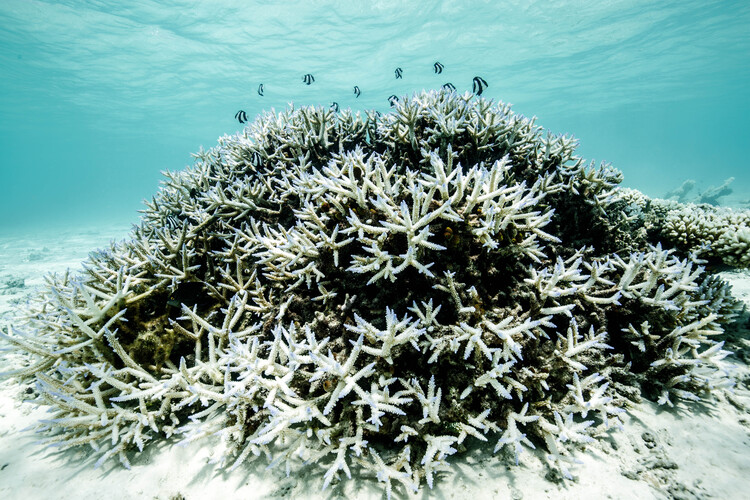
Most sophisticated modelling yet shows Great Barrier Reef could lose most of its coral by end of the century
By
A research team led by The University of Queensland has simulated different future climate scenarios driven by a range of plausible global emissions trajectories, finding that the Great Barrier Reef could lose most of its coral by the end of the century under current global emissions.
Published in Nature Communciations, the comprehensive modelling looked at 3,806 individual coral reefs and how they could adapt to warmer weather, large-scale reef dynamics and their interconnections on ocean currents.
Enjoying this article? Check out our related reads:
‘We ran all of those factors with the most up to date climate projections – and the news was not good,’ said Dr Yves-Marie Bozec.
‘We forecast a rapid coral decline before the middle of this century regardless of the emissions scenario.’
‘Corals may partially recover after that, but only if ocean warming is sufficiently slow to allow natural adaptation to keep pace with temperature changes,’ Bozec continued.

The models used to test the reefs were compared with long-term historic monitoring of the Great Barrier Reef, ensuring it was as accurate as possible.
Despite the precarious future of most reefs, there is some good news within the research. Scientists found that reefs in areas where water doesn’t heat up so dramatically fare better than others. As well as this, the better-connected reefs with good access to larval replenishment – helping to build stronger reefs – were healthier.
‘These findings confirm our understanding that coral reefs and the communities they support are facing an existential threat,’ said executive director of the Reef Restoration and Adaptation Program, Dr Cedric Robillot.
‘We must curb greenhouse gas emissions drastically, redouble our current management efforts, and develop new interventions to assist coral reefs while ocean warming is gradually arrested.’
Why is the Great Barrier Reef so important?
The Great Barrier Reef contains the world’s largest collection of coral reefs, with more than 400 types of coral, 1,500 species of fish and 4,000 types of mollusc.

Holding the title as the world’s most extensive coral reef ecosystem, the Great Barrier Reef features more than 2,500 individual reefs and at least 900 islands, stretching across an area roughly the size of Japan.
It is a vital biodiversity hotspot and habitat for more than 1,600 species of fish, as well as 133 species of shark and rays, 30 species of whale and dolphin, and six of the seven sea turtle species known on earth.
The Great Barrier Reef also serves as a vital economic driver in Australia, sustaining more than 60,000 jobs – mostly in tourism – and contributing $6.4billion annually to the national economy.




